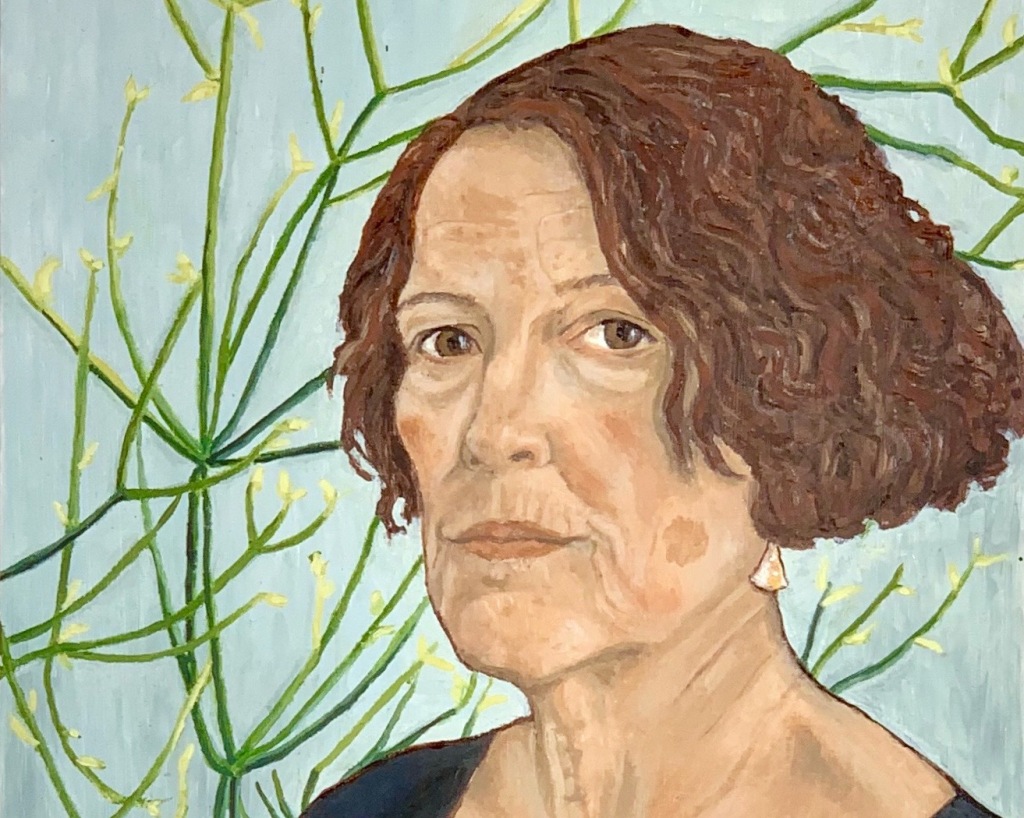When I invited Arlene Goldbard to take up this virtual residency, it seemed a simple idea, and so it has proved. It’s been a delight to have her presence here, and to be able to share her wisdom about ethics and cocreation. I was especially happy that she agreed to include her self-portraits, which catch something of her restless spirit. The text we’ve posted in sections over the past week was originally written as a note to accompany her workshops, so they’ve always been a foundation for discussion. I wanted readers to have a chance to talk about some of the ideas with Arlene, as they would if they were participating in a workshop, so we decided to close the week with an online conversation.
On Friday, about 70 people joined us on Zoom, from the USA, Hong Kong, Canada, Portugal, Ireland, the UK and elsewhere. Many of us have become familiar with this technology during the lockdown, and recognise that it’s a mixed blessing. It doesn’t always come together, but when it does, it has the ability to create a sense of togetherness that is very precious right now. On Friday, I felt that it did do that, finding precious common ground across our diverse locations, cultures and experience. Several people who couldn’t take part asked for the session to be recorded, so we’ve done that and you can watch it on Arlene’s Vimeo channel. Those who, like me, would rather listen to it while doing the washing up or walking the dog, can download the audio file in MP3 format.
Thanks to everyone who joined in. We hope you found it as rewarding as we did. The Covid-19 crisis is changing many things and it will continue to affect our lives for years to come. It’s been heartening to see how much people have turned to art and culture – and especially to making and sharing it – as a way of expressing their ideas and feelings, creating connections and passing the time. I believe there will be a huge need for community art in the coming period, as we look to heal and recover from some of the hurt that’s been caused. Our challenge will be how we can adapt our usual ways of working to suit the new conditions. Difficult, but not beyond our ingenuity and imagination. Arlene and I are considering whether this would make a good topic for another Zoom conversation in a couple of weeks’ time: do let us know if you’d like to take part.
- Follow this link to watch the Zoom conversation on Vimeo
- Follow this link to download the audio file in MP3 format

7 responses to “Talking about the ethics of participatory art”
[…] like to view the video of that conversation or listen to the audio, you can find links to both on Francois’ wrap-up blog. You’ll also read there that we are planning another virtual residency and conversation in a […]
LikeLike
[…] with one of the very best people to consider this question over the next week. Following on my “virtual residency” with Francois Matarasso earlier this month, I’m hosting our second virtual residency, this […]
LikeLike
[…] to the first installment of Francois Matarasso’s virtual residency on my blog. Following on my virtual residency with Francois earlier this month, I’m hosting our second residency. Between today and 4 June […]
LikeLike
[…] to the second installment of Francois Matarasso’s virtual residency on my blog. Following on my virtual residency with Francois earlier this month, I’m hosting our second residency. Between 31 May and 4 June […]
LikeLike
[…] to the third installment of François Matarasso’s virtual residency on my blog. Following on my virtual residency with François earlier this month, I’m hosting our second residency. Between 31 May and 4 […]
LikeLike
[…] to the fourth installment of François Matarasso’s virtual residency on my blog. Following on my virtual residency with François earlier this month, I’m hosting our second residency. Between 31 May and 4 […]
LikeLike
[…] and final installment of François Matarasso’s virtual residency on my blog. Following on my virtual residency with François earlier this month, I’m hosting our second residency. Between 31 May and 4 […]
LikeLike